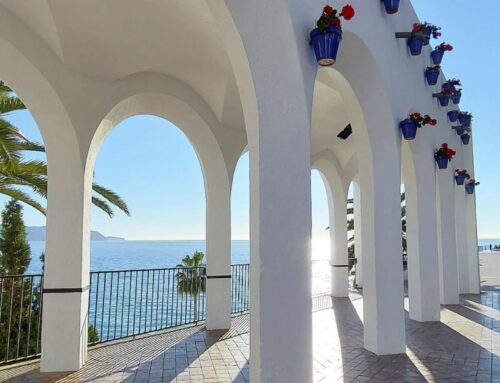Taxes and Costs of Buying Property in Spain – A Case Study of Costa del Sol

Author: Eve Keerus-Jusupov, CEO of Merlis Homes SL.
I help you find your ideal second home or commercial property on the Costa del Sol.
Have a question? Contact me via WhatsApp
Taxes When Purchasing Property
Whether you buy as an individual or a company, the taxes during the purchasing process are for the non residents and residents the same. The difference arises when you purchase a resale property or a new development.
Let’s take a closer look at both options.
Table of Contents
1. Taxes When Purchasing Property
2. Taxes After Purchasing Property
- Property Tax
- Income Tax
- If You Are a Spanish Resident
- If You Are an EU Citizen and Rent Out Your Property
- If You Are an EU Citizen and Do Not Rent Out Your Property
- If You Are an EU Citizen and Rent Out Your Property for Six Months and Live in It for Six Months
- If You Are Not an EU Citizen and Rent Out Your Property
- If You Are Not an EU Citizen and Do Not Rent Out Your Property
- Corporate Income Tax – If You Have Purchased Property as a Company
3. Costs After Purchasing Property
Property Maintenance and Management Costs
If You Buy a Resale Property

If you look at real estate ads, add about 10% to the real estate price. Prices are always without taxes.
As a rule, there is no brokerage fee, as we are usually paid by the seller.
- Transfer Tax (Impuesto de Transmisiones Patrimoniales – ITP)
The tax rate in Spain depends on the autonomous region and usually ranges from 6% to 10% of the purchase price. In Andalusia, the ITP rate for 2024 is 7%.
- Notary Fees
Notary fees vary depending on the complexity of the transaction, the value of the property, the number of pages, the number of documents, etc. The average notary fee is €1,750.
- Land Registry Fees (Registro de la Propiedad)
The fee for registering the property in the Land Registry averages €1,000. This depends on the value of the property, its location, the number of objects (e.g., a main house with outbuildings), etc.
- Legal Fees
It is recommended to always use the services of a lawyer, whose fee is usually 1% of the purchase price, plus VAT. For more expensive properties, the fee may be less than 1%, with separate arrangements made.
- Banking costs
When transferring money to Spain from your home country, you may face fees, especially when converting to euros. Consider using a specialist currency exchange broker to reduce these costs—compare quotes for the best deal.
Banks also charge for issuing the banker’s draft needed when signing the title deeds at the Notary. These fees can be high, often around 0.5% of the draft’s value, but they are negotiable. Check with your bank beforehand to avoid unexpected charges.
- Mortgage fees
If you’re financing your property purchase in Spain, budget for bank charges. A property valuation typically costs around €500. Mortgage fees generally amount to about 1% of the loan value.
- Contract Signing Fees
You will need separate contracts for electricity, water, and internet services. Expect to pay around €150 to €200 for each connection.
Second-hand Property Purchase Cost Calculator
Result:
Note
The calculator is an estimate. Notary fees and land registry fees may vary. Additionally, the lawyer’s fee is lower than 1% for higher-value transactions.
If You Buy a New Development

When looking at new development listings, consider adding approximately 13% to the property price. Prices are always listed without taxes.
Real estate agent fees are generally not applicable, as they are paid by the seller.
When purchasing a new development (i.e., property being sold for the first time) in Spain, the following taxes and costs apply:
- Value Added Tax (Impuesto sobre el Valor Añadido – IVA)
When buying new residential property, a 10% VAT applies. For commercial properties or building plots, the VAT rate is 21%. Generally, VAT cannot be reclaimed.
Under what conditions can VAT be reclaimed when buying a new development if the buyer is, for example, an Estonian company registered as a VAT payer in Spain?
If the buyer is a VAT-registered entity in Spain (i.e., an Estonian company with a CIF number, an Estonian company’s subsidiary, or a Spanish company), VAT can only be reclaimed if the new development is used for business purposes, such as renting it out to another company as commercial space, and the rent includes 21% VAT.
VAT cannot be added to rent for an individual, as residential leasing is VAT-exempt. If you rent the property to an individual, you will need to file an application with the tax authorities and repay the VAT that was previously deducted.
Currently, the time limit is 10 years—if you rent the property to a company for 10 years, you can rent it to an individual afterwards.
- Stamp Duty (Actos Jurídicos Documentados – AJD)
The stamp duty (AJD) rate varies by region but usually ranges between 0.5% and 1.5% of the property purchase price. In the Andalusia region, the standard AJD rate is 1.2%.
- Notary Fees
Notary fees vary depending on the complexity of the transaction, the value of the property, the number of pages, the number of documents, etc. The average notary fee is €1,750.
- Land Registry Fees (Registro de la Propiedad)
The fee for registering the property in the Land Registry averages €1,000. This depends on the value of the property, its location, the number of objects (e.g., a main house with outbuildings), etc.
- Legal Fees
As with resale properties, it is recommended to use the services of a lawyer, whose fee is usually 1% of the purchase price, plus VAT. For more expensive properties, the fee may be less than 1%, with separate arrangements made.
- Banking costs
When transferring money to Spain from your home country, you may face fees, especially when converting to euros. Consider using a specialist currency exchange broker to reduce these costs—compare quotes for the best deal.
Banks also charge for issuing the banker’s draft needed when signing the title deeds at the Notary. These fees can be high, often around 0.5% of the draft’s value, but they are negotiable. Check with your bank beforehand to avoid unexpected charges.
- Mortgage fees
If you’re financing your property purchase in Spain, budget for bank charges. A property valuation typically costs around €500. Mortgage fees generally amount to about 1% of the loan value.
- Contract Signing Fees
You will need separate contracts for electricity, water, and internet services. Expect to pay around €150 to €200 for each connection.
New Development Purchase Cost Calculator
Result:
Note
The calculator is an estimate. Notary fees and land registry fees may vary. Additionally, the lawyer’s fee is lower than 1% for higher-value transactions.
Taxes After Purchasing Property
Property Tax
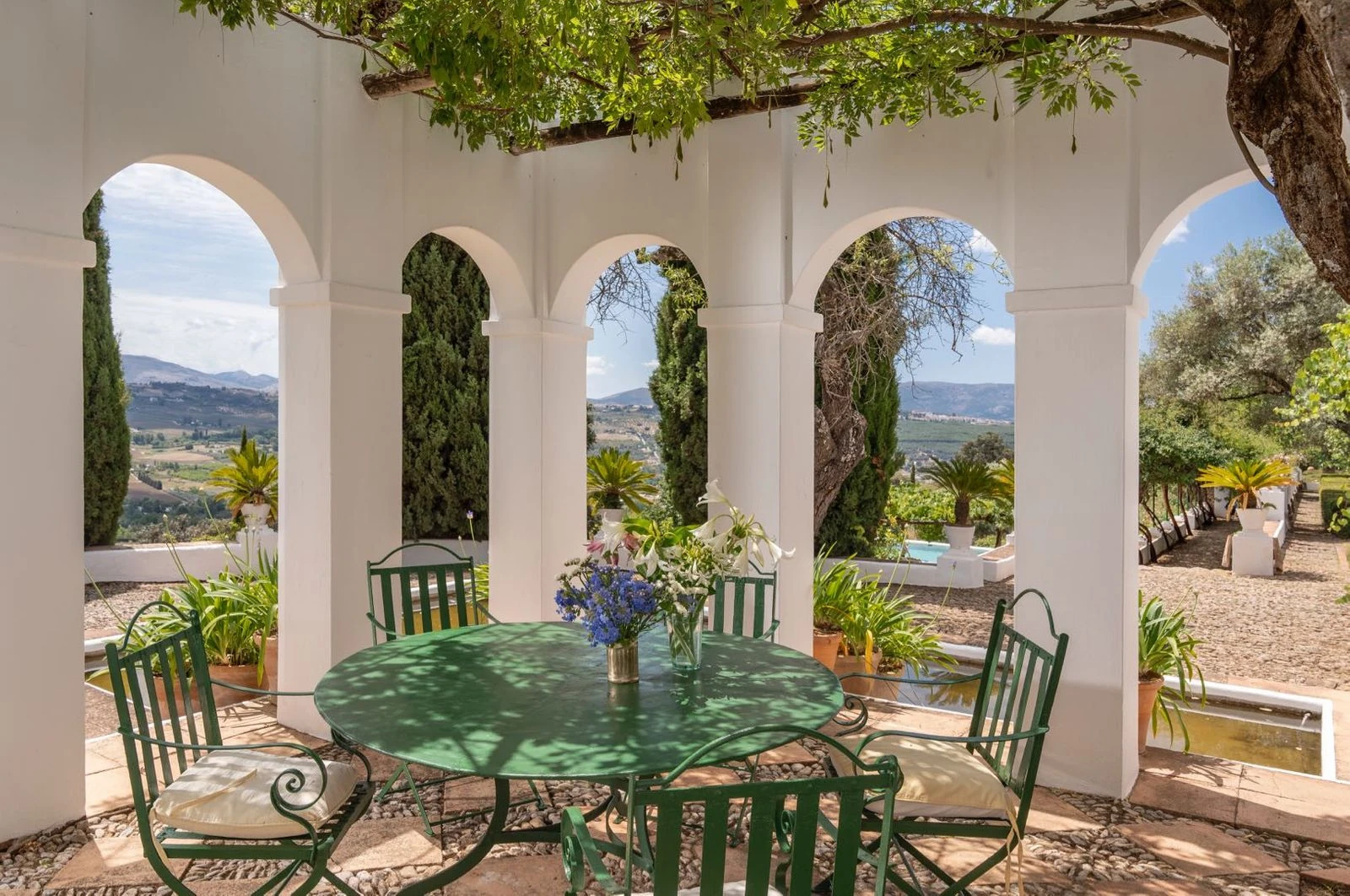
IBI (Impuesto sobre Bienes Inmuebles) is a property tax that includes the taxation of both land and buildings. The property owner pays the IBI tax once a year, with the exact payment deadline depending on the municipality.
IBI is a local tax, and the funds collected are typically used to finance local public services such as roads, schools, and parks. In 2022, approximately 13 billion euros were collected in IBI taxes across Spain.
The cost of IBI is calculated by municipalities, so it is not uniform throughout the country. Additionally, it depends on the location of the property and may vary from year to year based on changing calculation factors.
Calculation Variables:
- Cadastral Value of the Property: The Cadastral Office assesses the property, considering its location, market value, construction characteristics, and age.
- Tax Rate (or percentage of the cadastral value): This varies depending on the nature of the property. For urban properties, it typically ranges from 0.4% to 1.3%, and for rural properties, from 0.3% to 0.9%. The rate is set by the municipality.
As of 2024, Malaga has the lowest coefficient at 0.451 percent, while Benahavís has the highest at 0.8 percent.
Nerja has the second-lowest coefficient after Málaga, bringing in an average of 394 euros per household. It is followed by Mijas (412), Fuengirola (427), and Ronda (462).
At the mid-range, with an average of 500–600 euros per year, we find Alhaurín de la Torre (508), Antequera (510), Manilva (512), Casares (521), Torrox (538), Benalmádena (555), Marbella (555), Estepona (565), Vélez (581), and Alhaurín El Grande (589).
Five municipalities have an average IBI exceeding 600 euros: Benahavís (683), Cártama (666), Torremolinos (641), Rincón (624), and Coín (624).
Malaga, Nerja, and Mijas are closest to the minimum coefficient allowed by tax law, remaining between 0.4% and 0.5%. No municipality comes particularly close to the maximum value of 1.1%.
When buying or selling property, it is important to clarify who will pay the IBI for the current year, as by law, the person who owns the property on January 1st is responsible for paying it. Typically, this tax is proportionally divided between the buyer and the seller.
Income Tax for Individuals – If You Have Purchased Property as an Individual

Income tax in Spain is collected by the Spanish Tax Agency (Agencia Tributaria) and is used to fund the national budget.
The revenue from income tax is allocated to support public services such as education, healthcare, security, and social services. It is also used for infrastructure development, including road construction, railways, airports, and social welfare, such as pensions, unemployment benefits, and social assistance.
If You Are a Spanish Resident

If you use the property as your primary residence, you do not pay annual income tax on it. However, if you rent out the property, you must pay income tax on the rental income, which is progressive and depends on your total income.
Spanish income tax rates vary depending on annual income, ranging from 19% to 47%.
If You Are an EU Citizen and Rent Out Your Property
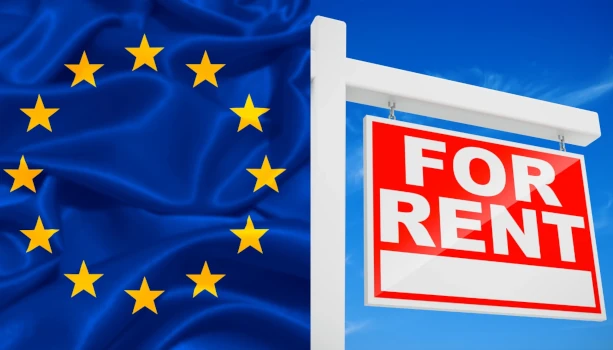
The income tax rate is 19%. EU citizens can deduct certain expenses from their gross income, such as maintenance costs, insurance premiums, mortgage interest, and management fees, as well as justified expenses related to client services. This means that income tax is calculated only after these deductions.
If I Rent Out My Property, What Expenses Can I Deduct From My Income?
The expenses that can be deducted are directly related to generating rental income.
These include:
- Repair and Maintenance Costs: Expenses incurred to maintain or improve the condition of the rental property.
- Note: This does not include expenses related to capital improvements or major renovations. These increase the property’s value and are recorded as fixed assets, with depreciation applied at 3% per year.
- Property Management Fees: The market average is 15-25% of revenue.
- Utility Bills: Water, electricity, gas, trash, internet.
- Insurance: Property insurance costs, security company fees.
- Other Costs: Such as property taxes, accounting fees, advertising costs.
- Interest Expenses: Mortgage interest costs related to acquiring or improving the property.
- Property Furnishing Costs: Towels, pillows, blankets, bed linens, kitchen appliances, and kitchenware.
- Note: Furniture also increases the property’s value and should be depreciated at 10%.
It is important to remember that tax laws and their interpretations can change, and special situations may require individual approaches.
In the context of taxation, it is crucial to keep all receipts and invoices that prove expenses, as the tax authorities may request to see these documents. It is also recommended to take pictures of the property’s condition before any work, to make it easier to provide evidence if necessary.
As of 2024, the process of declaring and paying income tax has been simplified. Previously, declarations had to be submitted quarterly, but now you will file your income tax return in January 2025.
If You Are an EU Citizen and Do Not Rent Out Your Property
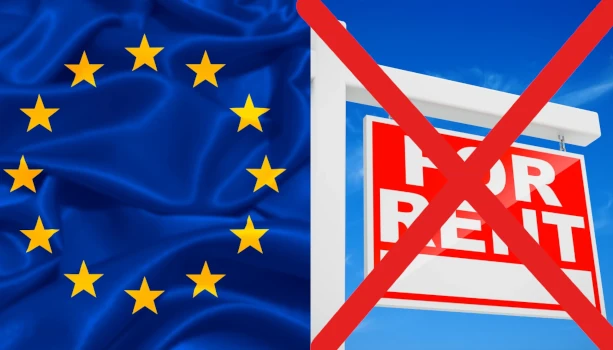
If the property is not rented out, the Spanish tax authorities still assume that the property could potentially generate income. Therefore, you are still required to pay non-resident income tax, but it is calculated differently.
To calculate the income tax, the cadastral value of the property is used. Note: This is not the market value.
Typically, 1.1% to 2% of the cadastral value of the property is considered (depending on whether the value has been updated in the last ten years).
1.1% of the cadastral value is applied if the property’s cadastral value has been updated in the last 10 years. The updated value takes into account more modern assessment criteria and is usually closer to the actual market value of the property.
2% of the cadastral value is applied if the cadastral value has not been updated in the last 10 years. Older values often do not reflect the market value of the property, so a higher percentage is applied.
If the property is not rented out, the tax must be declared and paid once a year.
Example:
You purchased a property for €380,000. The cadastral value is €240,000. Since the cadastral value has been updated in the last 10 years, the 1.1% rate applies.
Hypothetical rental income = 1.1% * €240,000 = €2,640.
Income tax on the hypothetical rental income:
As an EU citizen, you would pay 19% on this income.
Income tax = 19% * €2,640 = €501.60.
Therefore, if you do not rent out your property, you are required to pay €501.60 in non-resident income tax annually, according to this example.
If You Are an EU Citizen and Rent Out Your Property for 6 Months and Live in It for 6 Months

Taxation During the Period When the Property Is Rented Out:
- You pay 19% income tax on the rental income received.
- Let’s assume you rent out the property for 6 months and earn €12,000 in rental income during that period.
- You had €6,000 in deductible expenses (maintenance, insurance, utilities, management fees, etc.).
Calculating Taxable Income:
- Taxable Income = Rental Income – Deductible Expenses, i.e., €12,000 – €6,000 = €6,000.
Income Tax on Rental Income:
- Income Tax = 19% * €6,000 = €1,140.
Hypothetical Rental Income for the Period When the Property Is Not Rented Out:
If you use the property yourself for 6 months or it remains vacant:
- Hypothetical Rental Income = 1.1% * €240,000 * (6/12) = €1,320.
- The income tax calculated on this would be 19% * €1,320 = €250.80.
Summary:
- Income tax on rental income: €1,140.
- Income tax on hypothetical rental income: €250.80.
- Total annual income tax: €1,390.80.
Therefore, you would pay a total of €1,390.80 in income tax for the entire year, taking into account both the deductible expenses on rental income and the hypothetical rental income calculated for the period when the property was vacant.
It is important to keep all expense documents so that you can present them to the tax authorities if required.
If You Are Not an EU Citizen and Rent Out Your Property
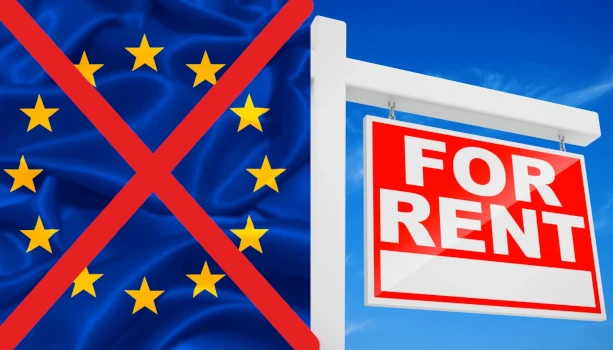
Non-EU citizens are subject to a higher income tax rate of 24% on the total gross income. Unlike EU citizens, you are not entitled to deduct expenses such as maintenance and management fees, insurance premiums, etc.
- Rental Income: €24,000 per year.
- Income Tax: 24% * €24,000 = €5,760.
If you earn €24,000 per year from renting out your property and you are not an EU citizen, you will have to pay €5,760 in income tax. It is important to remember that this income tax must be declared and paid to the Spanish Tax Agency.
If You Are Not an EU Citizen and Do Not Rent Out Your Property
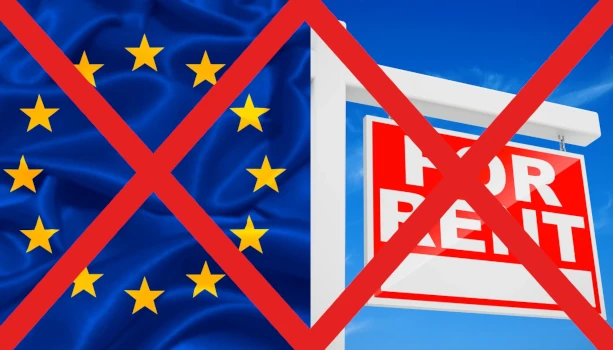
In this case, income tax is calculated using the cadastral value of the property. To calculate the income tax, 1.1% to 2% of the property’s cadastral value is considered (depending on whether the value has been updated in the last ten years).
Example:
- Cadastral Value: €240,000 (assuming it has been updated in the last 10 years).
- Hypothetical Rental Income: 1.1% * €240,000 = €2,640.
Income Tax on Hypothetical Rental Income:
- The income tax rate for non-EU citizens is 24%.
- Income Tax: 24% * €2,640 = €633.60.
If you do not rent out your property and the cadastral value is €240,000, you will pay €633.60 in income tax annually based on the hypothetical rental income.
Corporate Income Tax – If You Have Purchased Property as a Company

If You Purchased as a Spanish Company
Spanish companies are subject to a corporate income tax at a general rate of 25%. This tax is based on the company’s total profits, including income related to property.
- If a Spanish company rents out its property, the rental income must be included in the company’s total income and is subject to the 25% tax rate.
- The company can deduct all property-related expenses, including maintenance, repairs, insurance, management fees, and depreciation. These expenses reduce the taxable income and, consequently, the amount of corporate income tax payable.
If You Purchased as an EU Company
If the company is registered in a European Union country, as well as in Norway or Iceland, the rental income from the property is subject to a 19% income tax rate. At this rate, EU companies can also deduct related expenses, which reduces the taxable amount.
If You Purchased as a Non-EU Company
If the company is registered outside the European Union (including Norway and Iceland), a higher corporate income tax rate of 24% applies. Unlike EU companies, non-EU companies cannot deduct expenses, so the entire income received is taxed on a gross basis.
Property Maintenance and Management Taxes

If you own property in Spain, you will incur monthly management costs related to the maintenance and use of the property.
- Community Fees (Comunidad de Propietarios)
Community fees cover the maintenance of shared areas, such as corridors, pools, elevators, gardens, and other communal services. These fees can vary significantly depending on the type and size of the property. In some complexes, there may be four gardeners, security staff, a heated pool, a gym, a spa area, beach transfer services, and tennis and padel courts—all these amenities are reflected in the community fees.
Price Range: €50–€300 per month, but for luxury properties, this can go up to €1,000 or more.
- Water
Water bills are usually based on consumption, but in some buildings, water costs may be shared and included in the community fees. The cost of water depends on the region and consumption rate.
Price Range: €20–€60 per month for average consumption.
- Electricity
Electricity costs depend on consumption and whether it is used for heating, cooling, or other purposes. Electricity bills can vary significantly between summer and winter.
Price Range: €50–€150 per month, depending on consumption. If the property has electric underfloor heating and an older heat pump running 24/7, the electricity bill can reach €1,000 or more per month.
You can opt for a fixed-rate payment plan to pay a fixed amount regardless of consumption.
- Internet and Telecommunications
Costs for internet connection and telecommunications services (including TV and phone) depend on the service provider and the package chosen.
Price Range: €30–€70 per month, depending on the package and service provider.
- Insurance
Property insurance coverage depends on the policy—covering risks like theft, fire, and other accidents.
Price Range: €200–€800 per year, depending on the coverage and value of the property.
- Security Services
If you use security services to ensure the safety of your property (including alarm systems, patrol services, etc.), this is a monthly cost that depends on the extent of services and solutions provided by the security company.
Price Range: €20–€100 per month, depending on the service provider and selected security services.
Summary
When purchasing property on the Costa del Sol, you must consider various taxes and costs that depend on the type of property (new development or resale).
After the purchase, income tax rules apply, which differ depending on whether the property is used personally or rented out. Additionally, you must consider property tax and other costs associated with property management and maintenance.
Have a Question?
Write to me at eve@merlishomes.com
Eve Keerus-Jusupov

